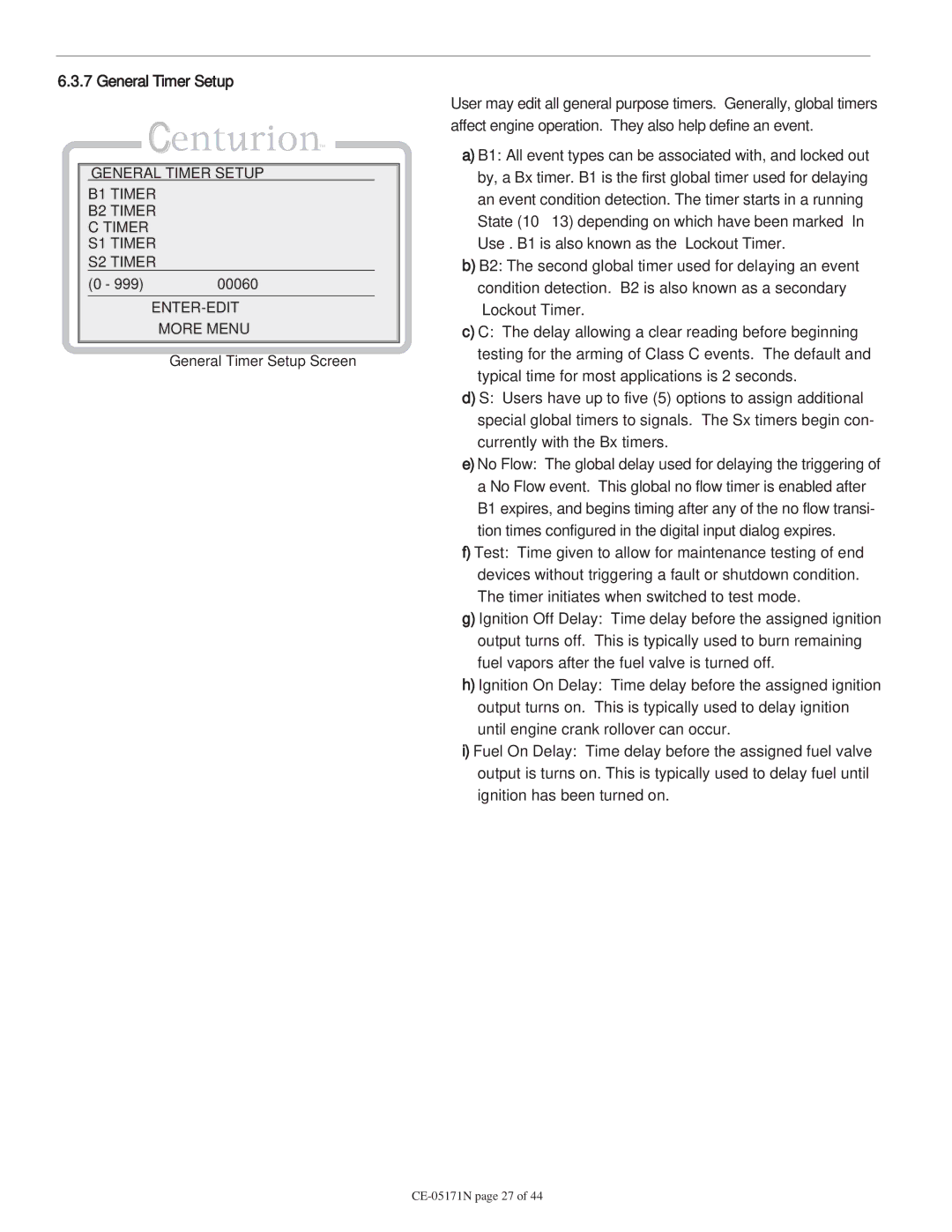
6.3.7 General Timer Setup
| C | TM |
|
| |
GENERAL TIMER SETUP |
| |
B1 | TIMER | ▼ |
B2 | TIMER |
|
C TIMER |
| |
S1 | TIMER |
|
S2 | TIMER |
|
(0 - 999) | 00060 | ▼ |
___________________________________ | ||
▼▲ |
| |
MORE MENU
General Timer Setup Screen
User may edit all general purpose timers. Generally, global timers affect engine operation. They also help define an event.
a)B1: All event types can be associated with, and locked out by, a Bx timer. B1 is the first global timer used for delaying an event condition detection. The timer starts in a running State (10 – 13) depending on which have been marked ‘In Use’. B1 is also known as the “Lockout Timer.”
b)B2: The second global timer used for delaying an event condition detection. B2 is also known as a secondary “Lockout Timer.”
c)C: The delay allowing a clear reading before beginning testing for the arming of Class C events. The default and typical time for most applications is 2 seconds.
d)S: Users have up to five (5) options to assign additional special global timers to signals. The Sx timers begin con- currently with the Bx timers.
e)No Flow: The global delay used for delaying the triggering of a No Flow event. This global no flow timer is enabled after B1 expires, and begins timing after any of the no flow transi- tion times configured in the digital input dialog expires.
f)Test: Time given to allow for maintenance testing of end devices without triggering a fault or shutdown condition. The timer initiates when switched to test mode.
g)Ignition Off Delay: Time delay before the assigned ignition output turns off. This is typically used to burn remaining fuel vapors after the fuel valve is turned off.
h)Ignition On Delay: Time delay before the assigned ignition output turns on. This is typically used to delay ignition until engine crank rollover can occur.
i)Fuel On Delay: Time delay before the assigned fuel valve output is turns on. This is typically used to delay fuel until ignition has been turned on.
